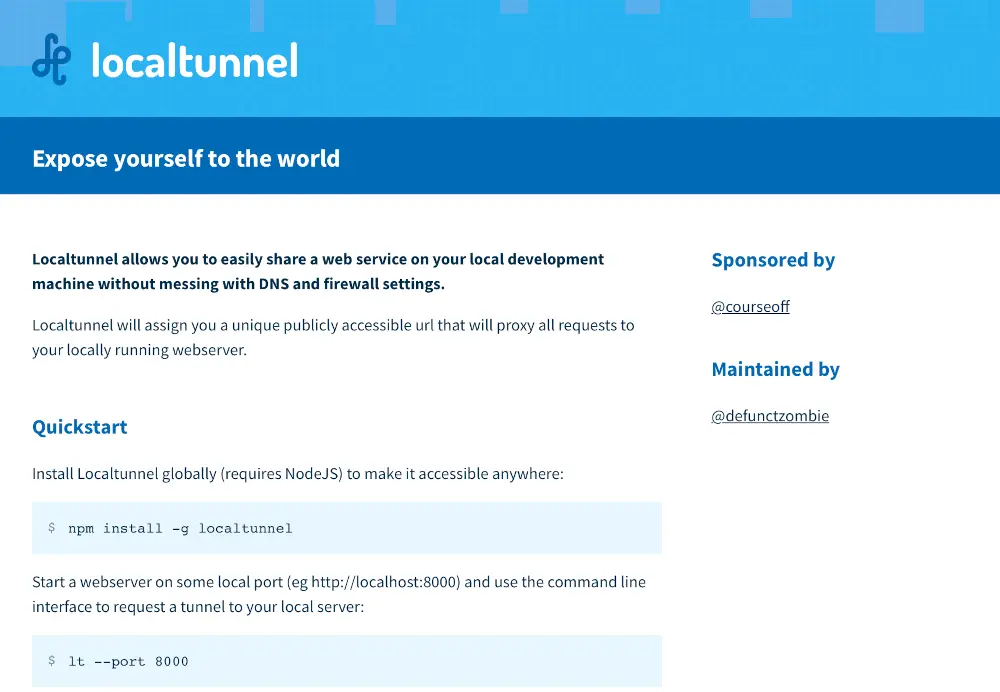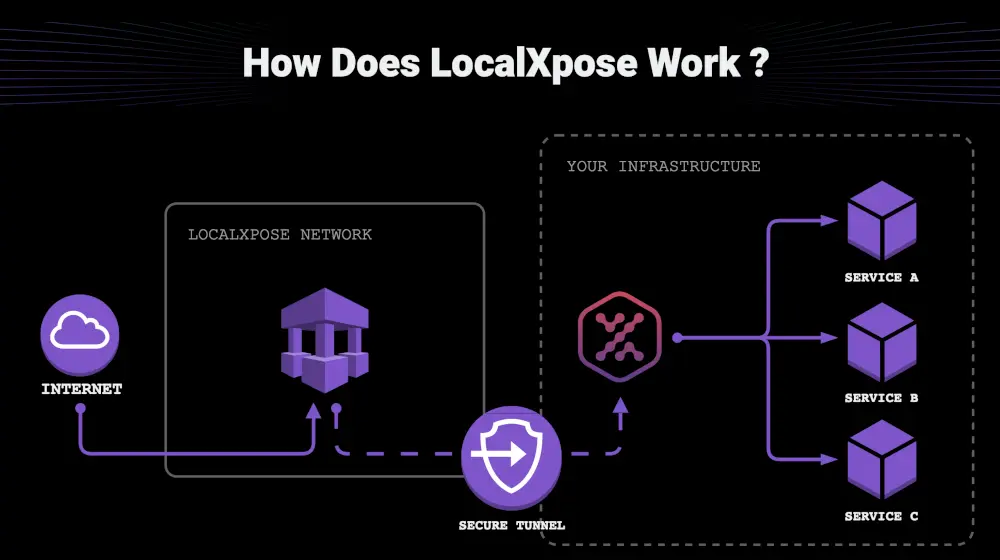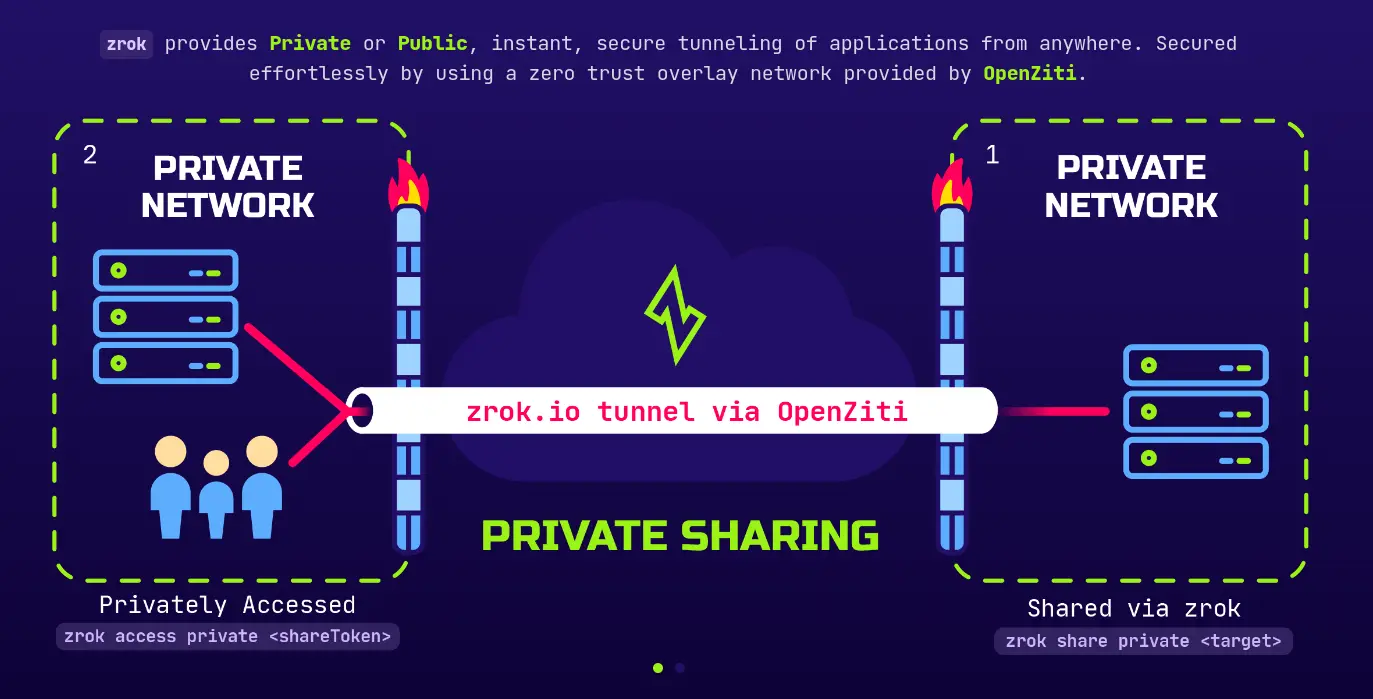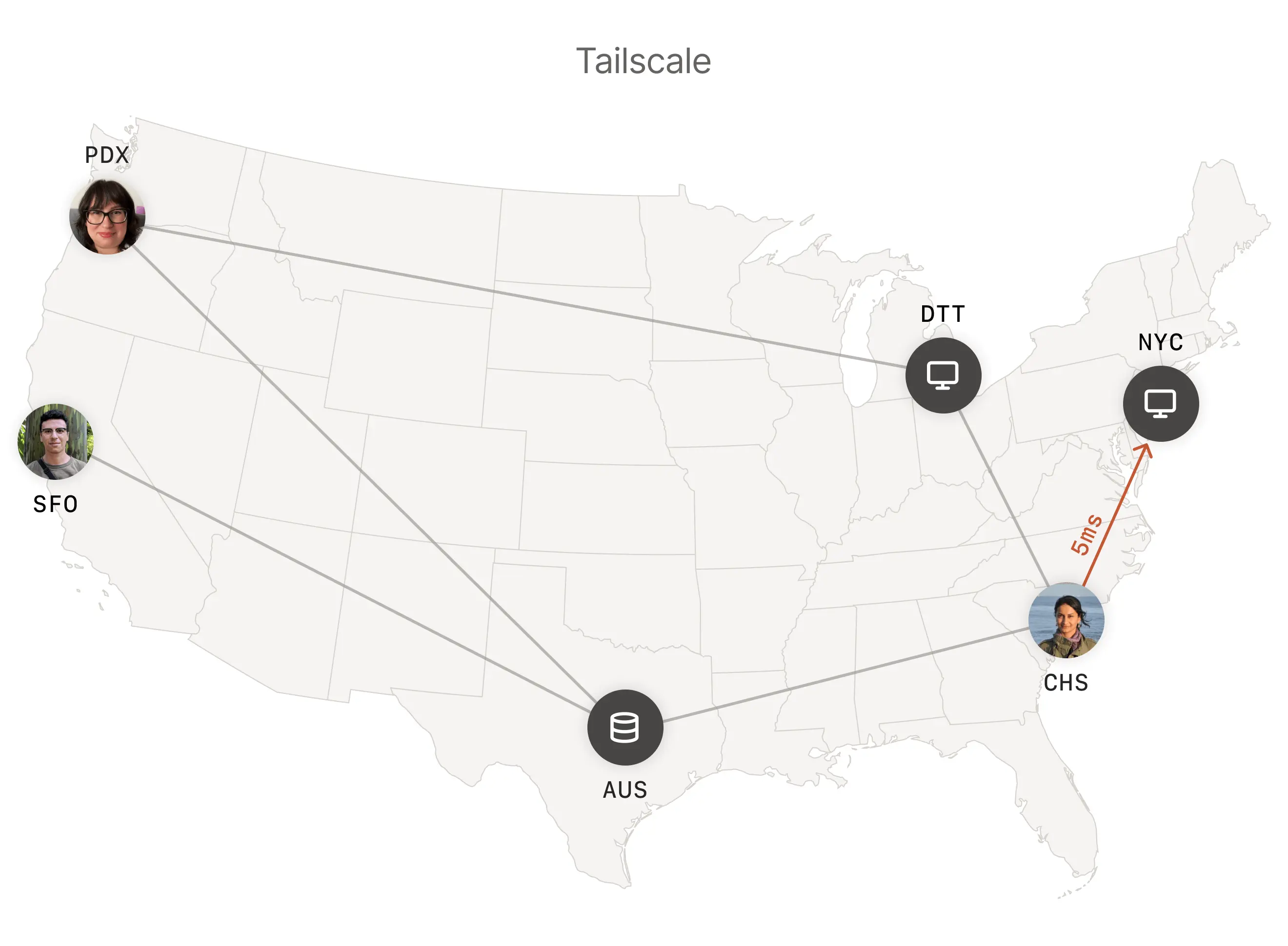Best 5 Ngrok alternatives in 2024
Updated on Jan 31, 2024 · 7 mins read
Ngrok is an ingress-as-a-service that provides tunnels facilitating instant ingress to your apps in any cloud, private network, or device. Using Ngrok tunnels you can share your website / app from your localhost. It has many other use cases such as connecting to IoT devices behind NAT and firewall, receiving webhooks, debugging HTTP requests, and more. Although very mature, Ngrok has its own limitations of being a complex ingress-as-a-service.
In this article, we will explore the top 5 alternatives of Ngrok in 2024. We will cover the features, installation process, ease of use and pricing of the Ngrok alternatives to help you choose the best one.

List of top 5 Ngrok alternatives in 2024
Bonus: Tailscale
Overview of Ngrok
Before jumping into the alternatives for Ngrok, we will have a brief overview of Ngrok itself.
Ngrok provides tunnels for ingress through its programmable network edge. It offers HTTPS, TCP, and TLS tunnels. It provides observability as well as the ability to change traffic parameters such as headers on the go to your apps with no code changes. In order to use Ngrok you must download the Ngrok client and sign up to get an account. In the paid plans you get features such as webhook verification, OAuth authentication, custom domain, persistent TCP port, etc.
Pros of Ngrok
- Ngrok client is available for Linux, Mac, Windows, and Docker.
- Authenticated URLs using either HTTP Basic Authentication or Oauth 2.0.
- Request response introspection and replay capability.
- Supports custom domains.
- Webhook verification on the fly for popular services such as Twilio, Facebook, etc.
- Manage tunnels remotely.
- Plenty of integrations and plugins.
Cons of Ngrok
- Requirement of downloading the Ngrok client binary.
- Need to sign in to the Ngrok client to use the service.
- 1GB per month bandwidth cap in the starting paid plan.
- No UDP tunnels.
- In the free tier, users visiting an Ngrok url are presented with a Ngrok page first.
Ngrok price
Ngrok starts at $8 per month for the “Personal” plan, which provides one persistent domain and TCP port. It has a bandwidth cap of 1GB per month. The “Pro” plan, priced at $20 per month, offers features such as IP whitelisting and unlimited webhook verification. It charges $0.10/GB for bandwidth exceeding 1GB per month.
1. Pinggy.io
Pinggy.io is a tunneling tool that gives a public address to access your localhost, even while sitting behind a NAT or a firewall – all this in a single command. With this Ngrok alternative, without downloading anything, a single command gives users access to your website / app hosted in localhost without configuring the cloud, or any port forwarding, or DNS, or VPN.
To get how simple it is to open a tunnel, here is an example. If you want to share your React app running on localhost:3000, you can do so using pinggy with the command:
ssh -p 443 -R0:localhost:3000 a.pinggy.io
Pinggy is one of the Ngrok alternatives which you can try out for free without signing up for an account. Over Ngrok, it provides features such as QR codes for tunnel URLs and an HTTP request / response inspection tool within the terminal.
Pros of Pinggy
- No need to download anything.
- Provides a terminal user interface with QR codes and request inspector.
- Built-in web-debugger to monitor, inspect, modify, and replay HTTP requests.
- Works on Mac / PC / Linux / Docker.
- Provides TCP tunnels to access IoT devices and custom protocols.
- Single command handles all configuration as well as authentication.
- Supports custom domains.
- HTTP basic authentication and Bearer token authentication.
- No need to sign up to get test tunnels - just visit https://pinggy.io to get the command.
- Cheaper than Ngrok.
Cons of Pinggy
- No UDP tunnels
- No OAuth 2.0 authentication for tunnel visitors.
Price of Pinggy
Pinggy is one of the cheaper Ngrok alternatives. It has a free tier, and the paid tier starts at $2.5 per month. It offes all features including custom domains, persistent TCP ports, live header manipulation, in this plan.
2. Localtunnel
Localtunnel is a Ngrok alternative that comes as an npm package. The package lets you create http / https tunnels to localhost. It provides a random subdomain when you run it through your terminal. Being a node package, localtunnel can be integrated to your applications as a library and you can use it to test your nodejs apps.

Pros of localtunnel
- NPM Package, can be used as a JS library
- Works on Mac / PC / Linux.
- Simple to use
Cons of localtunnel
- No tcp tunnels
- No tls tunnels
- No custom domain or subdomain support.
- Being a node package it cannot be used without installing nodejs, or in IoT like environments that do not support nodejs
Price of localtunnel
Localtunnel is free and it does not have a paid tier. It does not provide custom domain or subdomains or TCP tunnels.
3. LocalXpose
LocalXpose is a reverse proxy tool that provides a public URL to localhost. This is one of the most feature complete alternatives of Ngrok. By simply downloading their client you can create HTTP / HTTPS tunnels, and also TCP / TLS as well as UDP tunnels. Among the three it is the only one that supports UDP traffic. LocalXpose also provides a built-in file server to share your files instantly.

Pros of LocalXpose
- UDP tunnel support
- Wildcard custom domains
- File server built in
- Request response viewer and editor
Cons of LocalXpose
- Need to download the client in order to start a tunnel
- No support for being used as a library / plugin
- No OAuth 2.0 authentication for tunnel visitors.
Price of LocalXpose
LoxalXpose starts at $6 per month for 10 tunnels.
4. Zrok
Zrok is an impressive open source Ngrok alternative that operates on the principles of zero trust networking. Built on top of OpenZiti, a programmable zero trust network overlay, zrok provides users with a secure and efficient way to share resources both publicly and privately.
Users can download zrok from GitHub https://github.com/openziti/zrok/releases/latest. It is one of the best self-hosted alternatives of Ngrok.

Pros of Zrok
- Open source
- Self-hosted
- Private network sharing
- Built-in file server
- UDP tunnels
Cons of Zrok
- Traffic introspection and replay features are not available.
- Initial setup process is tedious.
Price of Zrok
Zrok is open source and you need to host in a server.
5. localhost.run
localhost.run is possibly the simplest tunneling tool which is client-less and can instantly make a locally running application available on an internet accessible URL.
Just run the following command to create a tunnel to port 3000:
ssh -R 80:localhost:8080 localhost.run
Pros of localhost.run
- Simplicity: Localhost.run offers a straightforward and simple setup process. You only need to execute a single command in your terminal to start the tunneling process, making it easy for developers to get started quickly.
- No installation required: Unlike Ngrok, which requires installation and configuration, localhost.run doesn’t need any software installation. You can use it directly from the command line, which can be convenient, especially for quick testing or prototyping.
- Free to use: localhost.run offers a free tier, allowing you to use the service without any cost.
Cons of localhost.run
- Limited features: Compared to Ngrok and other alternatives such as Pinggy, localhost.run may have a significantly more limited set of features. For example, it may not provide advanced functionalities such as custom domains, request inspection, or TCP tunneling.
6. Tailscale
Tailscale is not exactly an Ngrok alternative, rather it is a VPN service. Instead of using a central VPN server employed by traditional VPN services, Tailscale uses a mesh network. The strategy employed by Tailscale prevents centralization whenever feasible. This leads to increased throughput and decreased latency, as machine-to-machine network traffic can move directly. Moreover, opting for decentralization enhances stability and dependability by minimizing instances of singular failure points.

The Tailscale Funnel represents a functionality enabling the directing of external internet traffic towards one or multiple nodes within your Tailscale network. This can be likened to the act of openly sharing a node, granting accessibility to anyone, irrespective of their possession of Tailscale.
Using Tailscale Funnel you can achive the functionality of Ngrok.
Top 5 Open Source Ngrok alternatives
If you are looking for only open source ngrok alternatives, here is a list:
Conclusion
In conclusion, we discussed some of the best alternatives of Ngrok in 2024, some of which are much easier to use without the need to download anything, such as localhost.run and Pinggy. Some are packed with features such as LocalXpose. We also took a look at Zrok which is an open-source and self-hosted alternative to Ngrok.